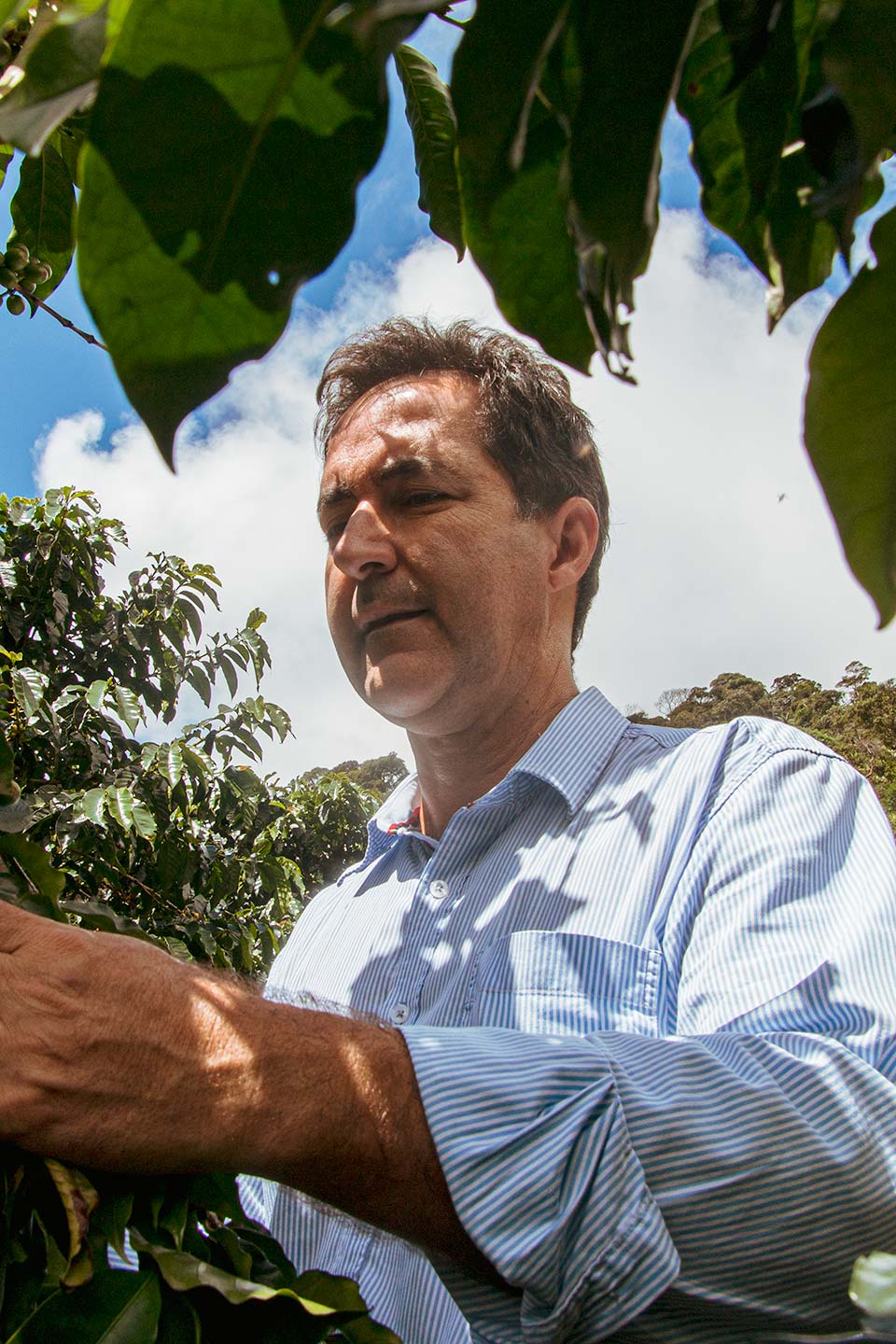
Fighting for Individuality: Letting Character Shine Through
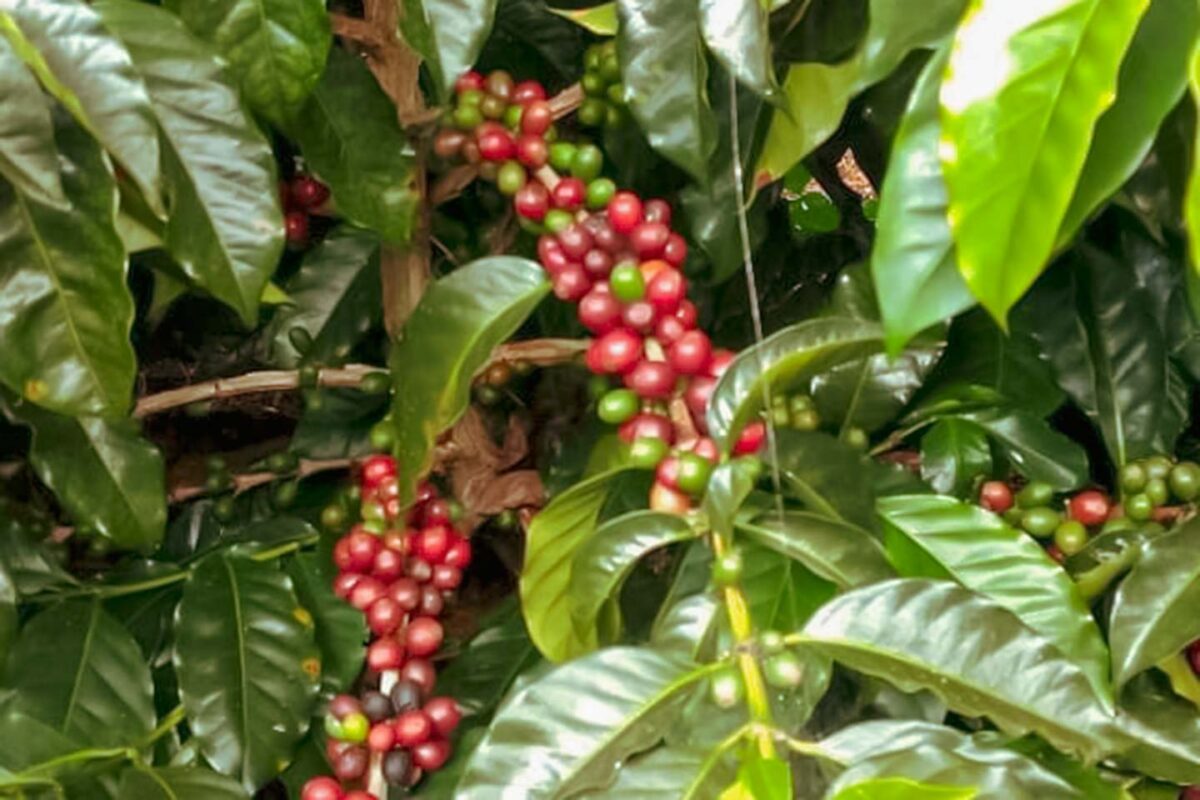
Everywhere you look, there are hidden gems waiting to be discovered. In the world of Brazilian specialty coffee, Espirito Santo has a hidden gem of a terroir. In fact, coffees from this region have finished within top three for three consecutive years in the annual Coffee of the Year contest at the International Coffee Week, one of the world’s largest coffee fairs held in Brazil.
Flávio Salles of Aromas do Caparaó is one of the producers who believes in the potential of Espirito Santo. A former agricultural engineer, Flávio owns six hectares of coffee farms and produces around six tons of coffee per year. He aims to increase this volume to 15 tons within the next three years.
Growing up as the grandchild of a coffee farmer, working in the fields was always his dream. Now, as a coffee farmer himself, Flávio finds happiness living among the forests and rivers, and embracing the lifelong challenge of producing high-quality coffee.
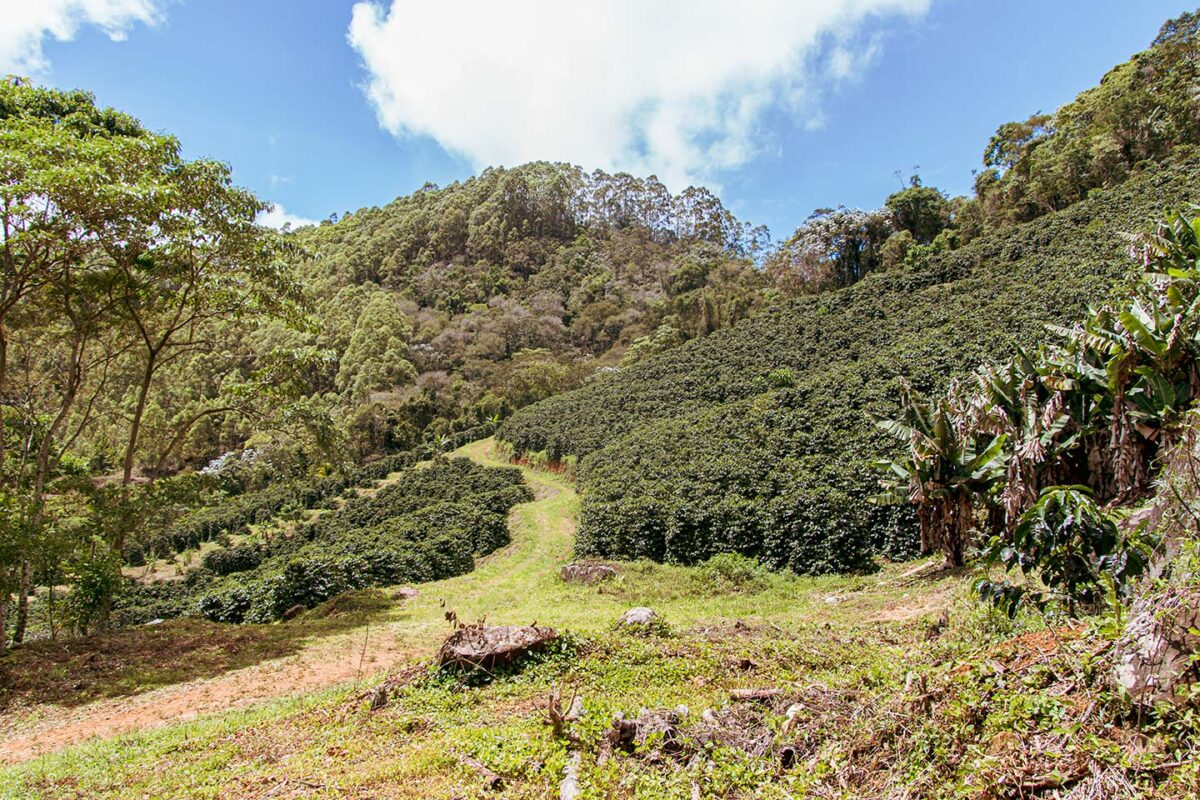
Taking leap of faith
Espirito Santo is home to a laboratory that specializes in the study of microbiology and its impact on coffee farming. Flávio, a self-described voracious researcher, actively participates in the research by providing a portion of his estate for experiments. Despite dropping out of a master’s program, his curiosity and desire to learn more continues to drive him to this day. Currently, he grows and studies over 20 different varieties of coffee on his farms.
“My farms are nestled in the lush forests of Caparaó National Park, so we have this whole ecosystem of microorganisms living there. In the summer, hot air comes through the valleys, which can make it 35 degrees Celsius during the day. But at night, a cool, humid sea breeze comes down from the 3,000-meter-tall mountain and pushes the temperature down to around 15 degrees. This unique climate gives our coffee beans a distinctive flavor.
Now, I can’t say for certain that it’s the environment that makes our coffee taste so special, but I like to think that the forests and the sea breeze are a big part of it. But whether it’s the climate or not, one thing is for sure: people who come visit here, they realize this place has a terroir that produces some truly unique and flavorful coffee.”
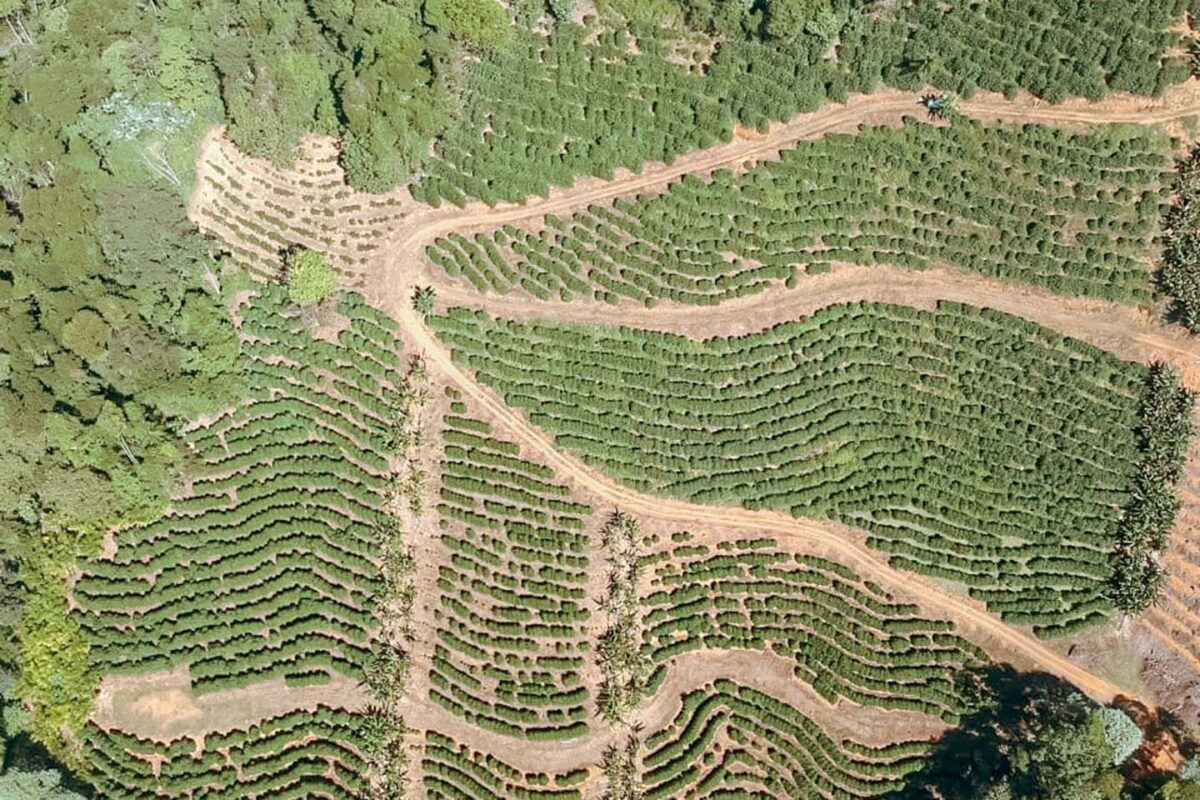
In one experiment, Flávio submitted coffee beans harvested before and after the start of the rainy season to the research institute for analysis. The results showed that the microbiomes of the coffees were significantly different, with variations up to 50%. In addition, the cupping score of the beans harvested after the start of the rainy season was three points higher.
“All this research shows just how sensitive and vulnerable the coffee grown in this region is to its environment. Timing is crucial when it comes to harvesting. If you harvest too early, you have to sacrifice quality and end up selling it as commodity grade coffee, which fetches a much lower price. If you want to avoid that, you have to be extremely careful and precise in your methods.”
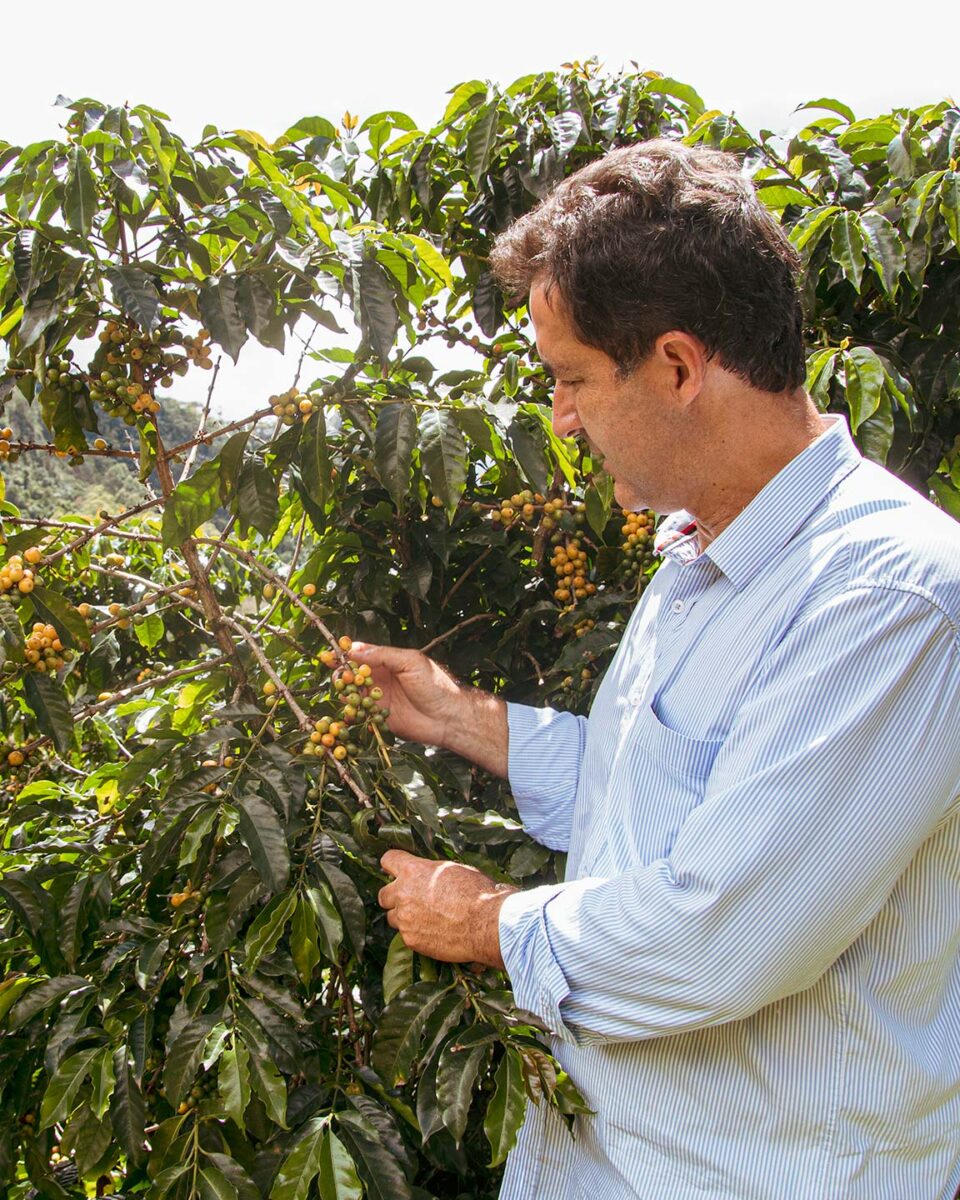
Flávio’s journey into the coffee industry is rooted in his education and early career. After earning his bachelor’s degree in agriculture in 1992, Flávio continued his education with a post-graduate program. Later, he owned and operated a retail shop selling pesticides and chemical fertilizers for seven years. He then worked as an agricultural engineering coordinator at a farmers’ cooperative. Eventually, he transitioned to a role at a financial institution that supports farmers. It was during this period that he acquired a piece of land and began growing coffee seedlings.
“This region is up on the side of a mountain. We grow a diverse range of coffees here that are harvested from July to January. But growing commodity coffee is not a viable option here because the terrain’s just too rugged, and you can’t really mechanize the process to increase productivity and cut costs. Hardly anyone ever dared to produce coffee here, they just thought it couldn’t be done.”
In 2015, Flávio took on the challenge of proving the impossible is possible. That year, he participated in the International Coffee Week and realized that specialty coffee was rapidly becoming the talk of the industry.
Acting on his newfound realization, Flávio quickly set to work. He began by planting a small batch of specialty coffee trees as an experiment. After harvesting the first lot the following year, he was convinced that producing specialty coffee was not only possible but could also be a sustainable business.
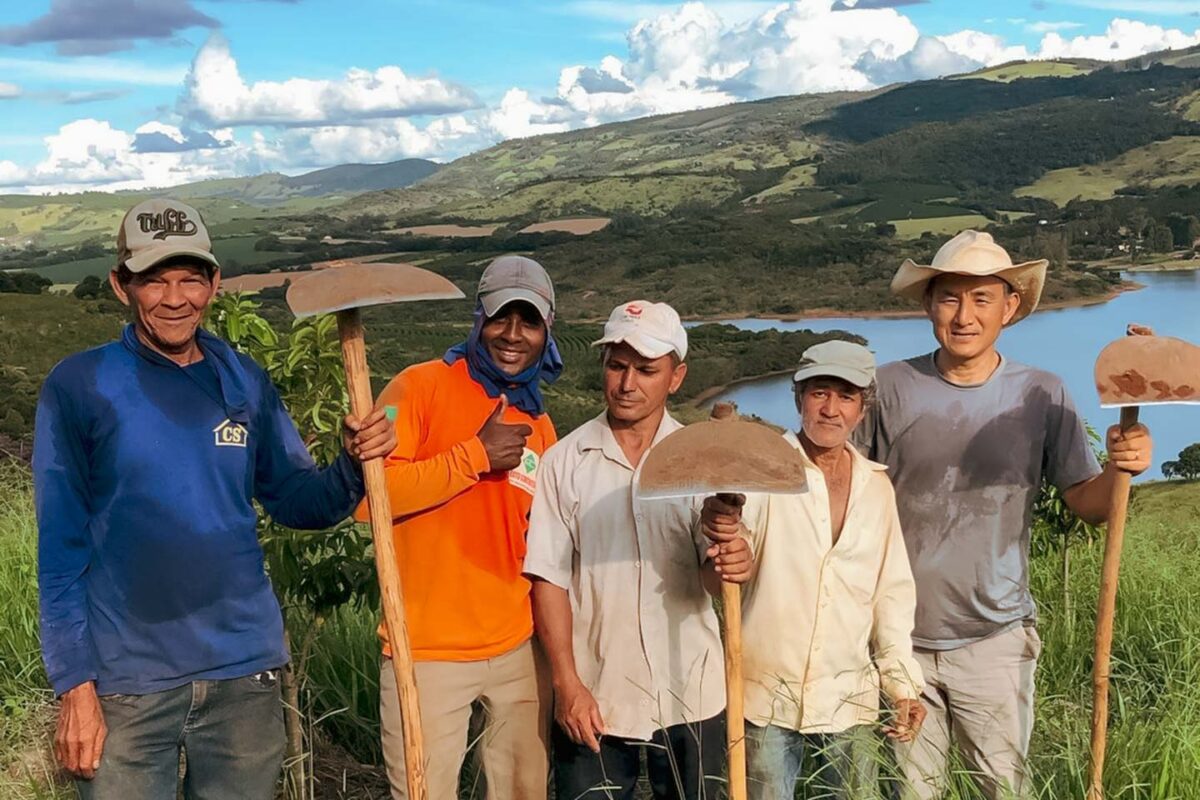
Flávio found an ally in his new venture in the form of Stefano Um, the founder of Brazil-based specialty coffee producer and exporter Um Coffee. Stefano had traveled extensively throughout Brazil, sampling the different regions’ coffee and ultimately falling in love with Espirito Santo, where he bought land and started producing specialty coffee. He not only produces high-quality coffee but also takes roasters from overseas on farm tours to showcase the unique terroir of Espirito Santo. Flávio is one of many producers in the region who trust and look up to Stefano as a leader in the industry.
“I’ve seen a lot of roasters get excited about the potential of coffees from Espirito Santo. Seeing that, other producers and I have also come to believe in this region. When I go to the International Coffee Week and taste coffee from other origins, it makes me even more certain that the coffees from Espirito Santo and Caparaó are truly special. It’s really exciting, and it gives me even more confidence in this region.”

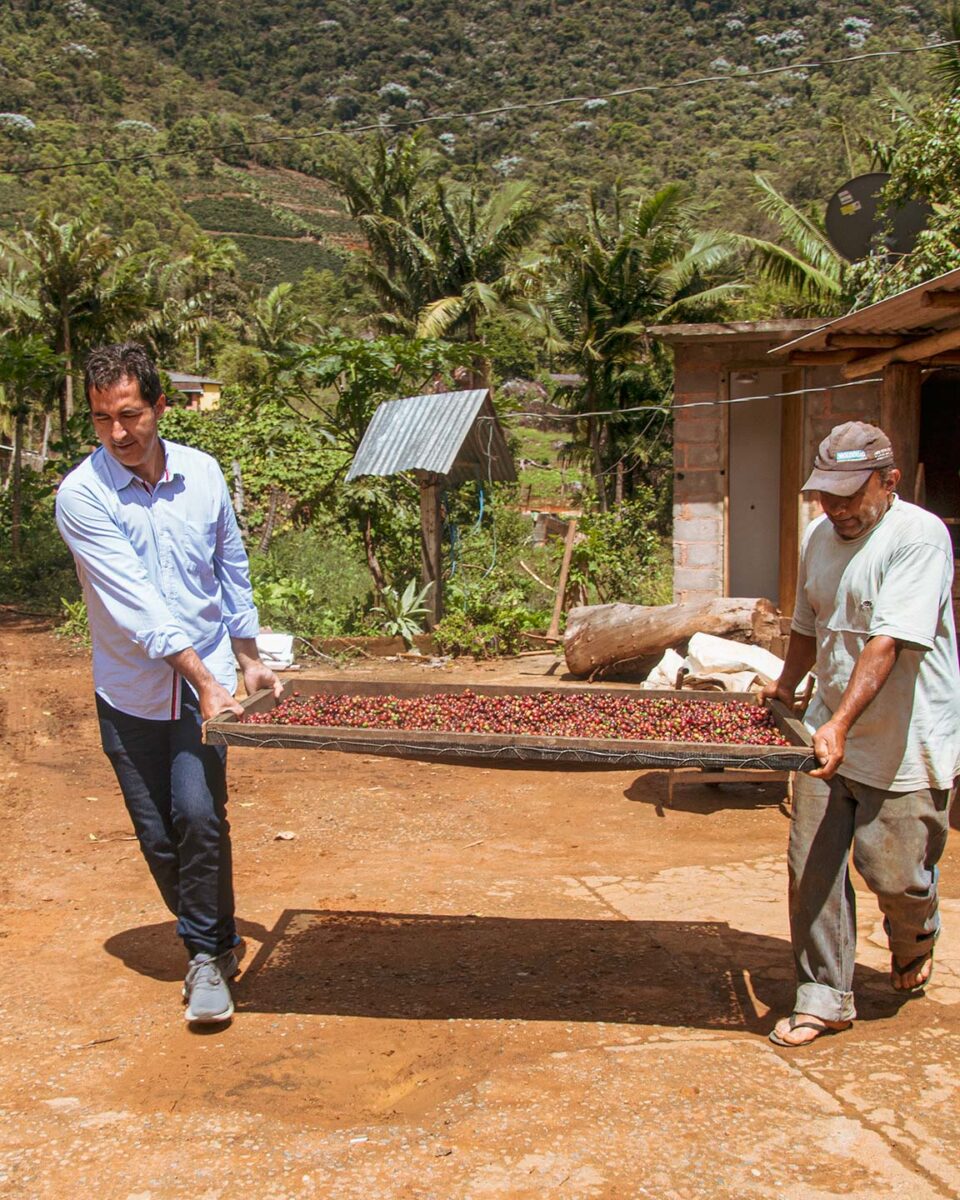
Specialty coffee as solution to poverty
The Caparaó National Park, near Flávio’s farms, stretches across two municipalities, where farmers primarily make a living through commodity coffee production and dairy farming. Unfortunately, these areas are among the least developed in the country, as indicated by low scores on the Human Development Index, a metric that considers factors like health, education, and income.
“Growing commodity coffee, it’s all about being efficient,” Flávio says. “Keep costs low, streamline operations, max out profit. But here, in a terrain like this, you can’t really use machines to do that, as I mentioned earlier. And that’s what keeps farmers stuck in poverty.”
With this in mind, Flávio sees specialty coffee as the solution to the cycle of poverty for farmers in the region. He is convinced that by producing and selling high-quality specialty coffees, farmers can earn a fair price for their hard work. To achieve this, he has been investing in mechanization and expansion of his own farms. To date, he has invested around 200,000 US dollars in these efforts, including the use of machines to dry washed-process beans and the purchase of depulpers to remove the skin from parchment coffee.
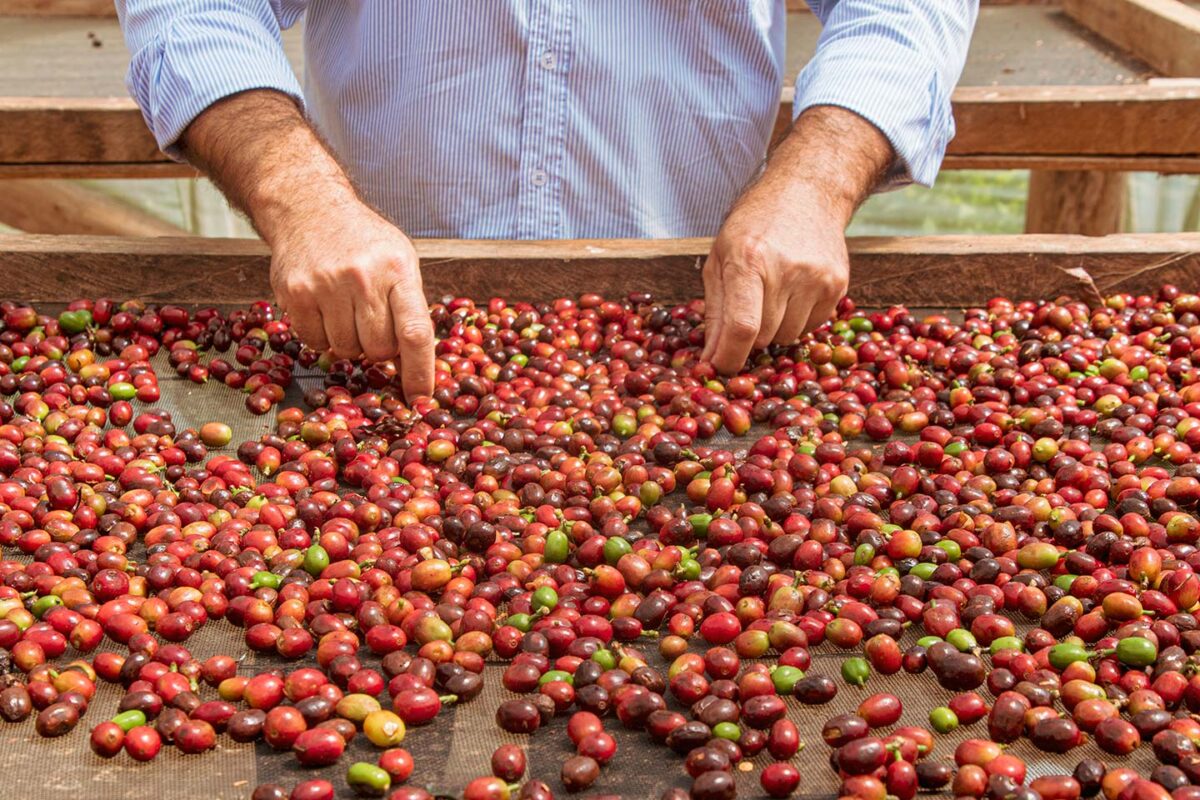
“Right now, my farms are only operating at half their potential because everything is done by hand. We could be producing twice as much as we are now and improving the quality. But without proper infrastructure, we can’t see good financial returns even if we grow specialty coffee. If we continue working this way, we’ll just keep losing money.
This is why investing in infrastructure is crucial to keep production costs low. Unfortunately, farming is not as exact and predictable as science. The quality of a crop can fluctuate from year to year depending on weather conditions. I can’t say for sure, but I think it’ll take about five years until we see returns on investment.
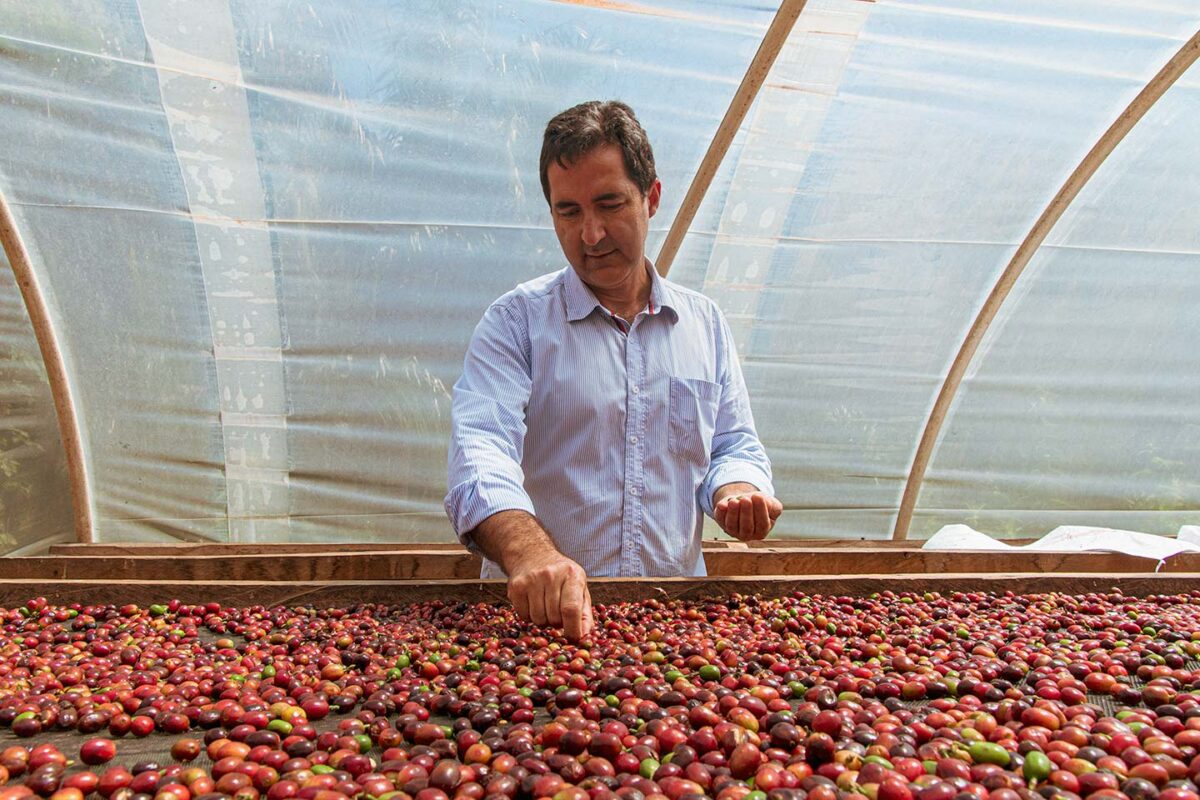
I must admit, I’m scared to have taken out such a huge debt. But if I can make this work as a pioneer, I will be able to help other producers who don’t have as much money to invest, by processing their coffee and incorporating them into my initiative. All I need is to have the courage to take the risk and have faith that everything will turn out well. It’ll give me the drive to achieve my objectives.
Specialty coffee has the power to transform small communities. It makes me really happy to attend the International Coffee Week and hear positive feedback about coffees from our region. Such moments bring joy and excitement to the families who work alongside me.”

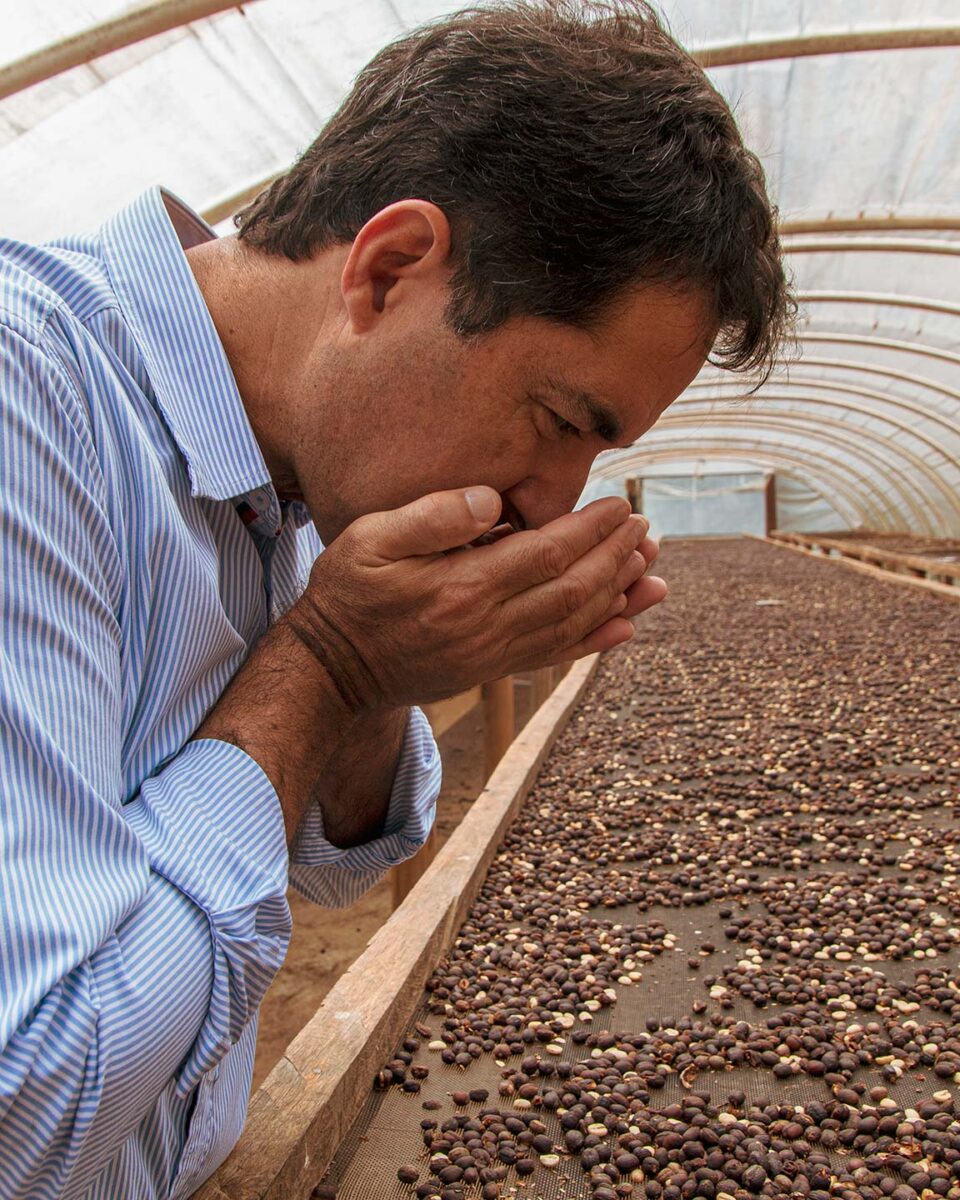
Strong partnerships with roasters to fight commercialism
Coffee is often compared to wine, as both have a distinct terroir. Climate, soil conditions, and the ecosystem of the farm – all these factors contribute to the unique aroma and flavor of the final product. And just like wine, coffee also has a wide range of variations.
Flávio explains, “Coffee farmers like us must strive to produce a unique product that can be attributed to the farm, the region, and the terroir, just as some wines can be distinguishable by their winery, vineyard and terroir.
However, Brazil’s coffee industry has been running on the same old models for decades, or even centuries. Powerful and wealthy players band together and buy up huge amounts of coffee to meet the demand from overseas, and there is no way to trace where the coffee came from or how it was produced.
When you give in to commercialism, you risk losing the unique qualities of specialty coffee and ending up with a uniform product like commercial coffee. Unfortunately, we’ve seen some specialty coffee intermediaries appear in this region, trying to standardize prices without considering the hard work and effort that goes into producing specialty coffee. They are essentially trying to turn specialty coffee into a commodity.
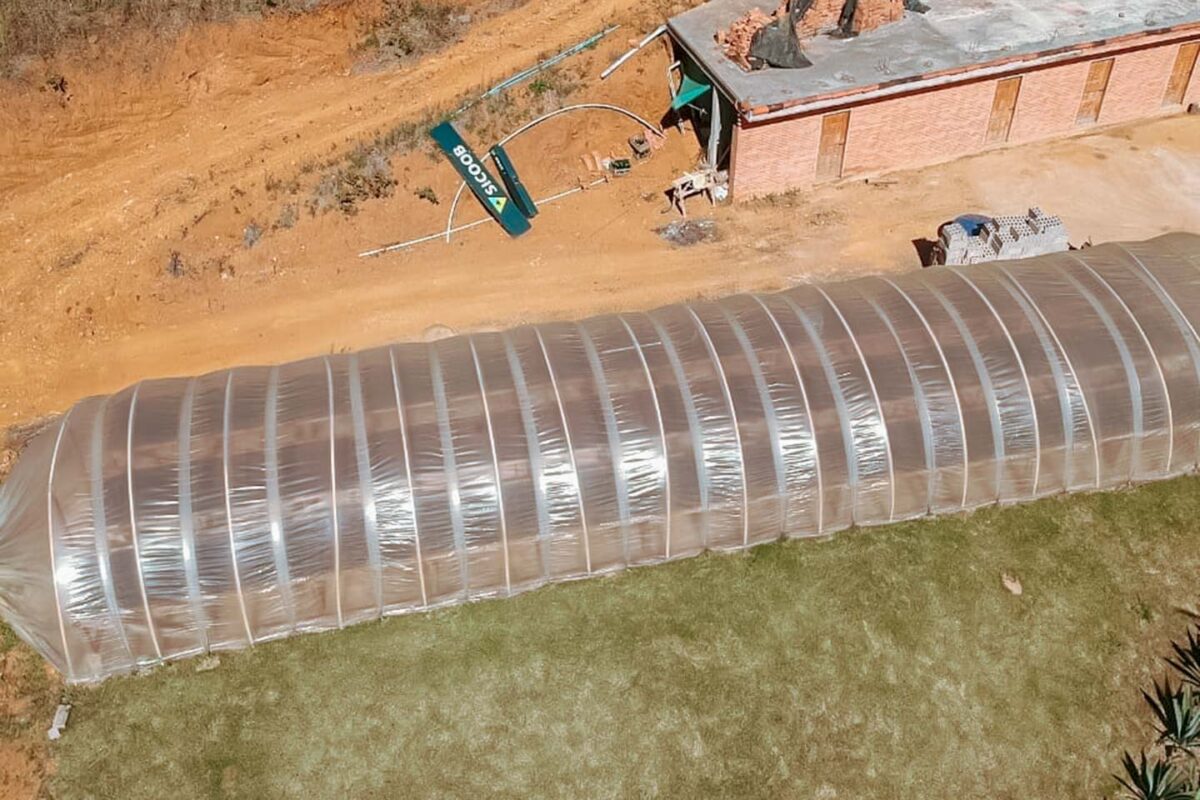
If you allow this to happen, the market will inevitably be controlled by these intermediaries. Commercialism doesn’t value diversity, background or the stories of individual producers. And it will result in specialty coffee producers becoming anonymous and indistinguishable from one another. We’ll be merely one of many specialty coffee producers in the world.
Do you think this is the right direction for the industry? In order for each of us to have a unique identity and character as an individual coffee producer, it’s important that we work closely with roasters.”
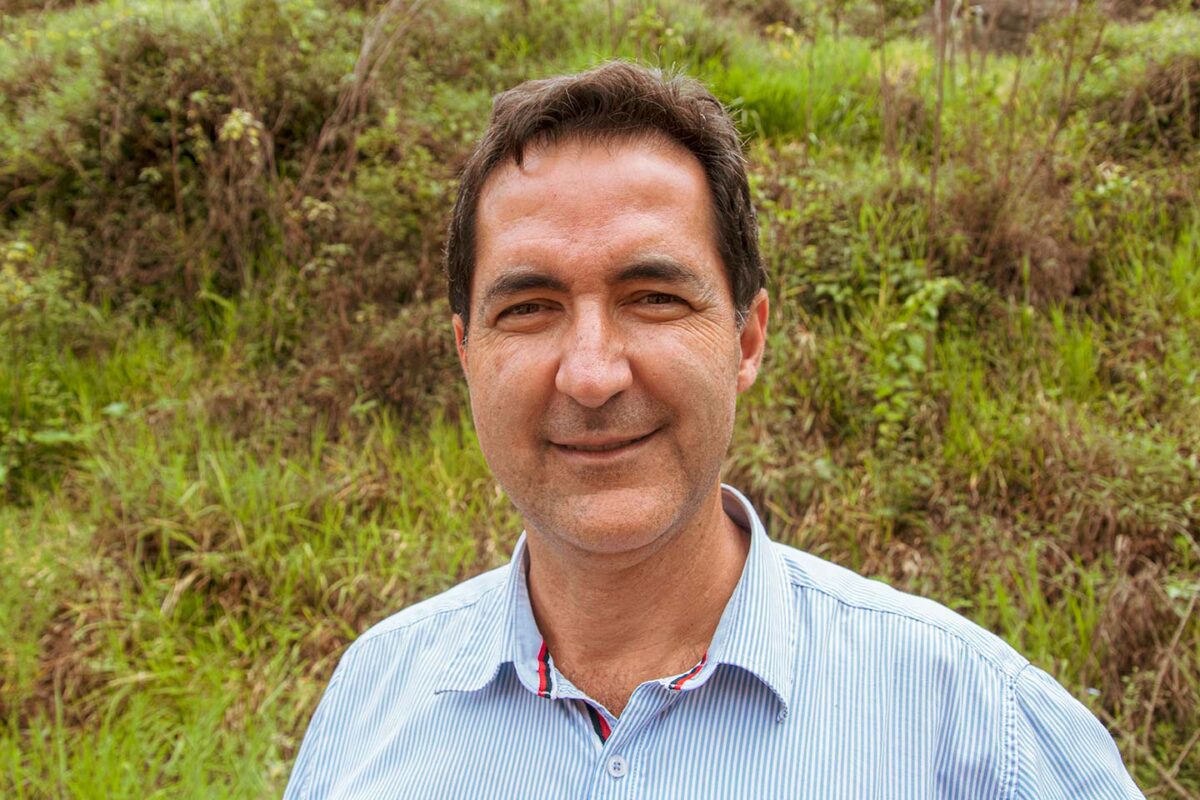
Though Flávio is keenly aware of capitalism’s tendency to create winners and losers, he is optimistic about the future of Espirito Santo’s coffees. He notes that more and more roasters are showing interest in the region. He cited the example of a Norwegian roaster who used his coffee to win second-place in a national barista competition in 2021 and returned to purchase more in 2022.
“Farmers like me are looking to establish more direct connections with roasters. When roasters come to our farms and see firsthand the realities of coffee production, they’ll be able to appreciate the differences and recognize the quality of our product. This is how we build traceability.
Last year, we had a Japanese visitor who came to our farm for the first time. As they were leaving, they told me, ‘I will learn Portuguese so I can communicate with you better. I want to bring my family next time.’ By meeting in person, farmers and roasters can share emotions and joy with each other.
We will always work to improve the quality of our coffee, and roasters will learn about our farms and share that with their consumers. To strengthen this relationship, I hope to see more roasters visit our farms in the future.”
Text: Tatsuya Nakamichi